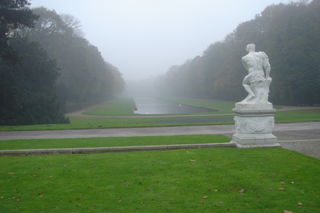Relationships
Is Romantic Love Just an Invention by Commerce?
Reflections on Valentine’s Day.
Posted February 12, 2018
The precise origin of Valentine’s Day is unknown but sources point to compassionate, brotherly love—not romance—that prompted the sainthood of Valentinus. According to legend, Valentinus knowingly violated the law in ancient Rome when providing Christian services and was sentenced to death. Centuries later, the day of his remembrance was romanticized when the concept of courtly love spread across Europe.
Over the past decades, businesses have looked at Valentine’s Day as another opportunity for increasing commerce. Branded as the “Hallmark Holiday," Valentine’s Day has caused some to suggest romantic love merely is an invention by the media and industry to engage people for their purposes. Admittedly, there is hardly a business that does not lure with merchandise specially advertised for Valentine’s Day. Of course, romantic dating itself supports a huge industry. Restaurants, movies, shows, jewelry, flowers, cards, chocolatiers, and many businesses cater particularly to people in romantic relationships—some of them specifically invented for this purpose. The case of the engagement diamond is particularly impressive: A strategic marketing campaign by the diamond cartel in the late 1930’s convinced much of the USA that a diamond—artificially overpriced by monopoly and often imported after a long chain of human exploitation—is a must present of “love” for an engagement.
Furthermore, Western societies promote physical attractiveness to a key asset for finding romantic love. Companies take in billions of dollars each year selling cosmetics, perfumes, hair and skin treatments, clothes, jewelry, weight-loss and body-building products, surgery, and more. Movies, magazines, books, computer games, and other media dealing with romantic love sell well.
Erich Fromm bemoaned the market aspect of romantic dating already in the 1950’s. He described how people estimate their own market value based on physical attractiveness, status, and wealth to find romantic partners matching their perceived asset for the transaction of a partnership. Nowadays, shopping for a lover has been facilitated by dating sites and apps. Conveniently, we may select from a number of desired characteristics to find our match in an internet catalog.

Is it true, then, that romantic love is just an illusion propagated by industry to support commerce? This impression is nurtured by many finding romantic love—at least as it is portrayed in songs, movies, and ads—to be elusive and short lived. The incredible excitement and obsession we may feel in the beginning of a romantic relationship invariably fades, leaving many to look for new excitement elsewhere in a perpetual pattern.
A more profound concept of love submits that it is not love that fades—it is our infatuation. Such deeper love indeed may begin when the obsessive thoughts decline. However, this kind of lasting love requires effort and focus—making it much less popular than the magical, short-lived feelings we have when falling in love. Ironically, the concept of love as an art—as Fromm suggested—is more empowering—we actually have much more control over love than we think. Romantic love very much exists. And yes, it is beautiful and magical—even though it may ask much more of us than we expected.
There are similarities between our fascination with falling in love and our fixation with commerce. Both provide gratification without much effort. When falling in love, our intense feelings carry us and the relationship—things are easy. It is also easy to buy stuff and to get satisfaction from it. Lasting love and happiness, however, are harder to attain. At its core, love implies the continuous concern for the wellbeing and happiness of somebody. To make somebody happy, we need to know what makes this someone happy—which takes consideration and effort. Buying chocolate for Valentine’s Day may be a nice gesture, but thinking deeply what somebody really likes and express it in a personal way is showing love.
Of course, buying flowers on Valentine’s Day—even when done thoughtfully—does not fundamentally change a relationship. Consistent display of effort and concern does. Love does not happen because of Valentine’s Day but may happen despite it. The lure of purchases may indeed distract from the meaning of romantic love. If we get caught up in the superficial routine of fulfilling expectations, we may miss it altogether. In this sense, Valentine’s Day is not different from any other day.


